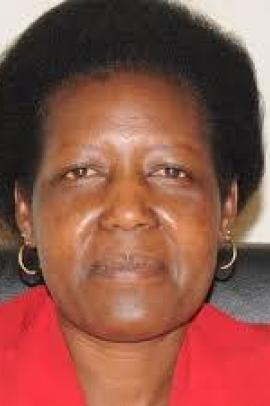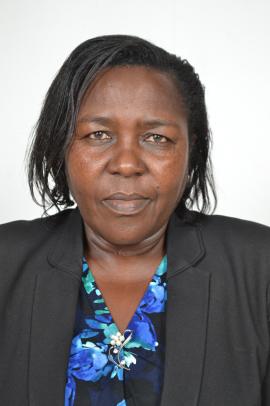https://stratfordjournals.org/journals/index.php/journal-of-entrepreneurship-proj/article/view/646

Student Short Biography
(Max 250 words)
Tonny Mutuva Matuku has an ICT background having started with a Diploma in Information Technolgy and later a Bachelors of Science degree in Information Science. He has been involved in several ICT projects while working for Harambee Sacco Society limited and now with Tanathi Water Works Development Agency(TAWWDA), a State Agency.
Tonny Mutuva Matuku developed an interest in Project Management when he joined TAWWDA. The State Agency develops water and sewerage infrastructure in Kitui, Makueni, Machakos, and Kajiado. Tonny Matuku has been tasked with guiding the Agency in project implementation by coming up with appropriate ICT support Tools for Water and Sewerage Projects. The projects include designing and implementation of dams, boreholes, laying of pipes lines, and sewerage plants. The projects need planning and management in terms of implementation and cost management. Various ICT tools are used and Tonny Matuku has seen challenges in the implementation of the ICT systems to coordinate the tasks. The Government of Kenya is funding automation in State Agencies to achieve coordinated project implementation.
Tonny Mutuva Matuku is currently the ICT Manager in Tanathi Water Works Development which is involved in increasing Water and Sewerage coverage inline with the Ministry of water, sanitation and irrigation in kenya.
Determinants of Enterprise Resource Planning System projects implementation in Kenyan State Agencies: A case of Tanathi Water Works Development Agency
Thesis / Project Abstract
(Max 250 words)
The aim of this study was determining enterprise resource planning system projects implementation in Kenyan State Agencies in a case of Tanathi water works development agency. The study objectives were: To establish how finance availability, capacity development, management commitment and Existing ICT Technology determine Enterprise Resource Planning System Implementation. Descriptive research design was utilized with a target population of 58 respondents drawn from Tanathi top managers, middle and other key departments. Sample size of 48 respondents was utilized. Data was collected through the use of questionnaires and analyzed through SPSS. All the questionnaires received were referenced and items in the questionnaire were coded to facilitate data entry. Descriptive statistics frequencies, percentages, mean score and standard deviation. Inferential data analysis was done using multiple regression analysis and presented through Tables. The study found that ERP was an added value for money but does not improve financial control and accuracy. The research also found that training development determines ERP system projects implementation in Tanathi Water Works Development Agency. In addition, it found out that, management were commitment to ERP programs implementation and managerial staff were committed to the systems continuous improvement. Other findings were, LAN/WAN determines ERP system projects implementation in the Tanathi Water Works Development Agency. Conclusion were that, capacity development was the greatest determinant of ERP system projects implementation, followed by financial availability, existing ICT Technology and management commitment. Recommendations were, that timelines should be realistic. Hence implementation and cost have to ensure the desired results are obtained with relevant software.
Student’s Google scholar link
(affiliated to student’s university email)
https://stratfordjournals.org/journals/index.php/journal-of-entrepreneurship-proj/article/view/646
Other relevant academic links
N/A
Research Supervisors
Dr. Johnbosco Kisimbi





